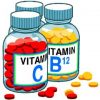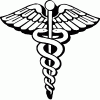Can Hot Peppers Cure Cancer?

Ed Currie, founder of the Puckerbutt Pepper Company in Fort Mill, South Carolina, hopes his homegrown “Carolina Reaper” — a crossbreed of a Sweet Habanero and a Naga Viper — will soon own the Guinness world record for the hottest chili pepper, but even if it doesn’t, he won’t feel his work has been in vain. That’s because he credits his pepper hobby-turned-profession with keeping him cancer-free.
The 49-year-old Currie, who has a family history of early death from heart disease and cancer, has had seven tumors removed from his body during his lifetime. Concerned for his health, he began researching indigenous people from around the world who eat hot peppers frequently and found they have very low occurrences of cancer and heart problems. Out of that research, his company was born, and in the five years since he began eating his hot peppers on a daily basis, he has remained cancer-free. Coincidence?
Maybe, but while Currie’s own experience is far from scientific, there is some clinical research to back his claim. There have been several studies on the medical benefits of capsaicin, a major active ingredient in hot peppers. For instance, in a 2006 study, researchers at the Samuel Oschin Comprehensive Cancer Institute at Cedars-Sinai Medical Center in Los Angeles found that capsaicin killed around 80% of prostate cancer cells in mice, and prostate cancer tumors treated with capsaicin were about one-fifth the size of tumors in non-treated mice. Similar findings occurred in studies on capsaicin’s impact on colon cancer cells, stomach cancer cells and breast cancer cells.
Despite these results, follow-up studies to determine whether such benefits apply to humans have yet to be conducted. It remains unclear whether capsaicin impacts cancer cells in humans and if so, whether it is safe for humans to use capsaicin as a treatment. After all, eating too many hot peppers on a regular basis has been linked to stomach cancer in the past.
Additionally, there has been no substantiated evidence yet to support claims that capsaicin can help with heart disease or a variety of other ailments to which it has been linked as a potential cure — including addiction, malaria, yellow fever, stroke, weight loss, poor appetite and sexual potency.
One benefit of capsaicin that has been proven, however, is pain relief. Studies have shown that it can be useful in treating pain, particularly following surgeries and cancer treatments. In fact, the FDA approved the sale of capsaicin as a non-prescription topical (i.e., non-ingested) pain reliever more than 20 years ago, and today you can find capsaicin creams, liquids and heating pads on drug store shelves nationwide.
(Sources: Puckerbutt Pepper Company, CBS News, Eurekalert, LiveStrong.com, PubMed.gov, Ocala Star-Banner, Cancer.org)







